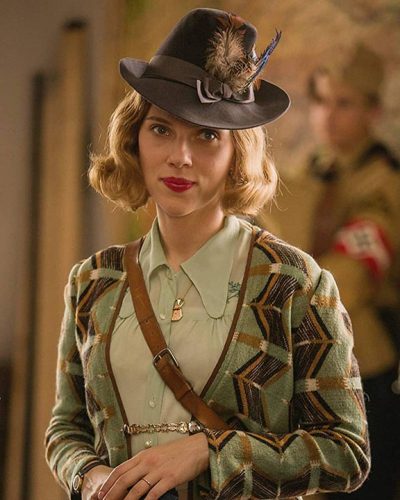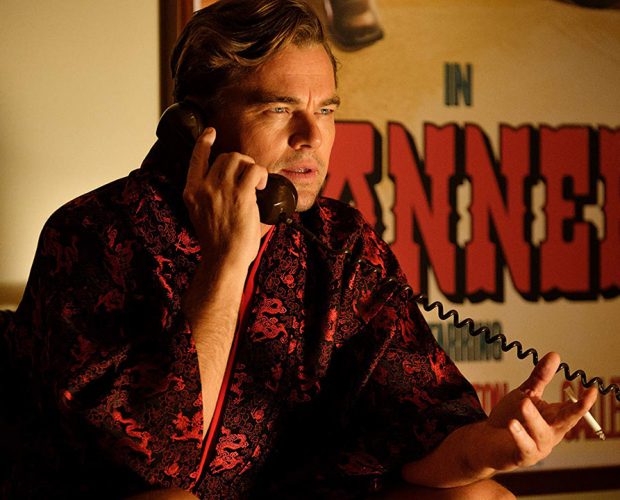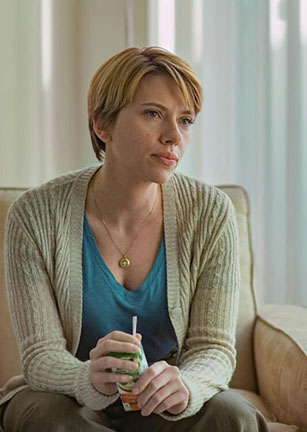![]() Later tonight the Academy Awards will act as the official closer on the 2019 year in film when the statues for outstanding achievements are handed out to winners – some deserving, some not so much.
Later tonight the Academy Awards will act as the official closer on the 2019 year in film when the statues for outstanding achievements are handed out to winners – some deserving, some not so much.
Even as each year the awards come and go with cries about their pointlessness, their wrongness and their myopia, they still persist as a barometer of taste for many. So, in preparation for this evening’s ceremony, and in lieu of a predictive list of would-be winners, here’s a look at the performers up for plaudits this evening.
The Academy selected 19 performances in 12 films to represent the range of great performances in 2019. It’s a mixed collection, but more of it is good than bad. Although marvellous work by performers like Alfre Woodard in “Clemency”, Penelope Cruz in “Pain and Glory”, Tom Mercier in “Synonyms”, Shia LaBeouf in “Honey Boy” and a slew of others are absent, the best of this year’s nominees offer sharp and compelling turns with enough complexity to last beyond this year.
Best Supporting Actor
Nominees: Tom Hanks (“A Beautiful Day in the Neighborhood); Anthony Hopkins (“The Two Popes”); Al Pacino (“The Irishman”); Joe Pesci (“The Irishman”); Brad Pitt (“Once Upon a Time in Hollywood”)
My Pick: Al Pacino for “The Irishman”

This category has always skewed towards rewarding older performers, but even by those standards the fact that the youngest nominee is 56-year old Pitt seems startling. Pitt is hoping to win his first acting Oscar after winning for producing “12 Years A Slave”. His competitors are four legends of the medium, who won their Oscars for their work in 1990, 1991, 1993, 1994 and 1995; a nineties reunion of sorts. It’s a solid category, assured by the fact that Pitt’s well-modulated and reticent work is my least favourite of the nominees’, although I won’t begrudge him his win which seems all but assured. But the category just is that strong this year. Hanks and Hopkins are doing thoughtful work, offering complicated interpretations of larger-than-life figures. It’s the two stalwarts of “The Irishman” that emerge as the strongest competitors, though. And Pacino is better. It’s the best performance in this category of the year. There is an intoxicating limitlessness to the way that he plays Jimmy Hoffa, a man that seems both dangerous and wholesome – sometimes in the same moment. It’s incredible work that recalls the boundlessness of spirit of his career-best work in “Dog Day Afternoon”, except Jimmy Hoffa isn’t a man on the edge of a nervous breakdown. Instead, even when his back is against the wall, Pacino’s Hoffa seems in control of our perception of him in a way that feels overwhelming and electric. It’s the lynchpin performance of the “The Irishman” and the surest example of how a big and blustering performance can be big and insightful at the same time.

Best Supporting Actress
Nominees: Kathy Bates (“Richard Jewell”); Laura Dern (“Marriage Story”); Scarlett Johansson (“Jojo Rabbit”); Florence Pugh (“Little Women”); Margot Robbie (“Bombshell”)
My Pick: Scarlett Johansson for “Jojo Rabbit”
In a category where recent winners include Alicia Vikander, for “The Danish Girl” and Viola Davis for “Fences”, two performances that were not supporting, there’s a comfort in the fact that each nominee here is a decidedly supporting one. Each woman here is coming from the margins of their respective films to command our attention for a limited time, albeit with varying success. Laura Dern’s incisive divorce-lawyer is the favoured winner, and it would be a more than satisfactory choice. Dern’s unsettling ability to play Nora’s lawyerly inclinations as a game of performance (watch how she modulates her behaviour depending on context) while resisting the idea of her character as a villain is marvellous. And she’s only the third best of the nominees. The odd one out here is Robbie, who cannot rise above the frustrating blankness of “Bombshell”. The fact that she’s so much more effective in “Once Upon a Time in Hollywood” exacerbates the limits of her work here. She’s easily the least assured of the best performances this year. Kathy Bates, as worried mother in “Richard Jewell”, harnesses a character of surface level emotion to much more impressive heights in her film, making Robbie’s work seem more superficial. If Robbie seems at sea in “Bombshell”, Johansson in “Jojo Rabbit” is consistently in control even as her character is often off-screen. Johansson is being asked to cull the idea of motherly warmth as a fulcrum for the main character of the film but the role is slippery one– deliberately opaque, almost idealistic in its ideation, and absent for the back half of the film. It’s incredible to watch, then, how she moves between trenchant comedy, ironic self-effacement and startling intensity to create a performance that seems so in touch with the exigencies Waititi’s demands in “Jojo Rabbit”.

Best Actor
Nominees: Antonio Banderas (“Pain and Glory”); Leonardo DiCaprio (“Once Upon a Time in Hollywood”); Adam Driver (“Marriage Story”); Joaquin Phoenix (“Joker”); Jonathan Pryce (“The Two Popes”)
My Pick: Leonardo DiCaprio for “Once Upon A Time in vHollywood”
Any of these men would make a credible winner, from a satisfying group of nominees. Banderas’ nomination is a great reward for an actor whose been great for decades in different languages, and yet he’s my least favourite – he is less affecting in “Pain and Glory” than his co-stars (particularly Penelope Cruz). Like Banderas, Jonathan Pryce earns a first nomination in a role that doesn’t speak to his greatest strengths, but provides a thoughtful idea of a man wrestling with his views of the world. If likely winner Joaquin Phoenix’s march to Oscar glory seems too easy – the film is so devoted to the character, one presumes any of his contemporaries would get the same plaudits – the work is nuanced enough to support itself. Phoenix is in firm control of the film, and director Todd Phillips needs him to support the film’s descent into chaos. Driver and DiCaprio are the best here, though. Two performances that seem under the threat of rupture, as two men struggle to keep it together under less-than-ideal circumstances. DiCaprio is best, though, in a performance that feels so complex that the way he’s been looked over all awards season feels bizarre. There’s a fascinating duality in DiCaprio’s work in “Once Upon A Time in Hollywood” that feels immediately kinetic. It’s not just that he’s balancing the sharp comedy of Rick’s descent alongside the tragedy of a man who may be losing his importance in a hellish industry. The way that the performance seems to be reflexively commenting on its own self means that each scene with DiCaprio seems to be holding layers and layers of subtext. So, he nails the big moments, the freak-out, the home-invasion, but he’s even better in the quieter ones, like a shy smile when a character says she likes his acting. Even if he loses the Oscar, this feels like a performance for the ages.
Best Actress

Nominees: Cynthia Erivo (“Harriet”); Scarlett Johansson (“Marriage Story”); Saoirse Ronan (“Little Women); Charlize Theron (“Bombshell”); Renee Zellweger (“Judy”)
My Pick: Scarlett Johansson for “Marriage Story”
In 92 years of the Oscars, Scarlett Johansson joins a small group as the 12th performer to earn two nominations in a single year. And she’s likely to be the fifth of that group to leave the ceremony without winning. Yet, win or not, there’s a searing intelligence to Johansson’s work here that stands out in a mixed field of nominees. Like her co-star, Robbie, Charlize Theron’s performance sticks out most here. Theron is better than Robbie, mostly because she plays Megyn Kelly’s one-dimensionality as deliberate, but the performance is never illuminating, and considering the potential nominees excluded, the nomination feels like a glaring misfortune. Like Theron, Erivo and Zellweger are also playing real women. Both films are more dutiful than eclectic, occasionally leaden but never terrible. Both performances are fine. Erivo is better in her brief turn in 2018’s “Widows” and the work here often feels too dutiful. Zellweger holds “Judy” together with her tenacity and of the two biopic performances, hers is better. Still, the fact that she will likely sail to a second Oscar win for this work feels unfortunate. It’s a shame that Ronan, on her fourth-nomination, is no threat for an incisive turn as Jo March. Worse yet, that Johansson – as the strongest turn in “Marriage Story” seems more likely to lose. For an actress perceived on screen for her capacity to play dangerous and often opaque women, the way that Johansson subverts her own image in “Marriage Story” while embracing the film’s ambiguity feels masterful. In a film so dependent on dialogue, Johansson’s excellence becomes assured by the scenes where she doesn’t speak. She’s in full control of Nicole’s perceptiveness – a startled facial reaction to an argument, an incredulous look at an overzealous work, a bowed head in a courtroom. The performance keeps revealing layers of intelligence that deepens the complexity of the role and the film. In an ideal world, it would be the winner this evening.

